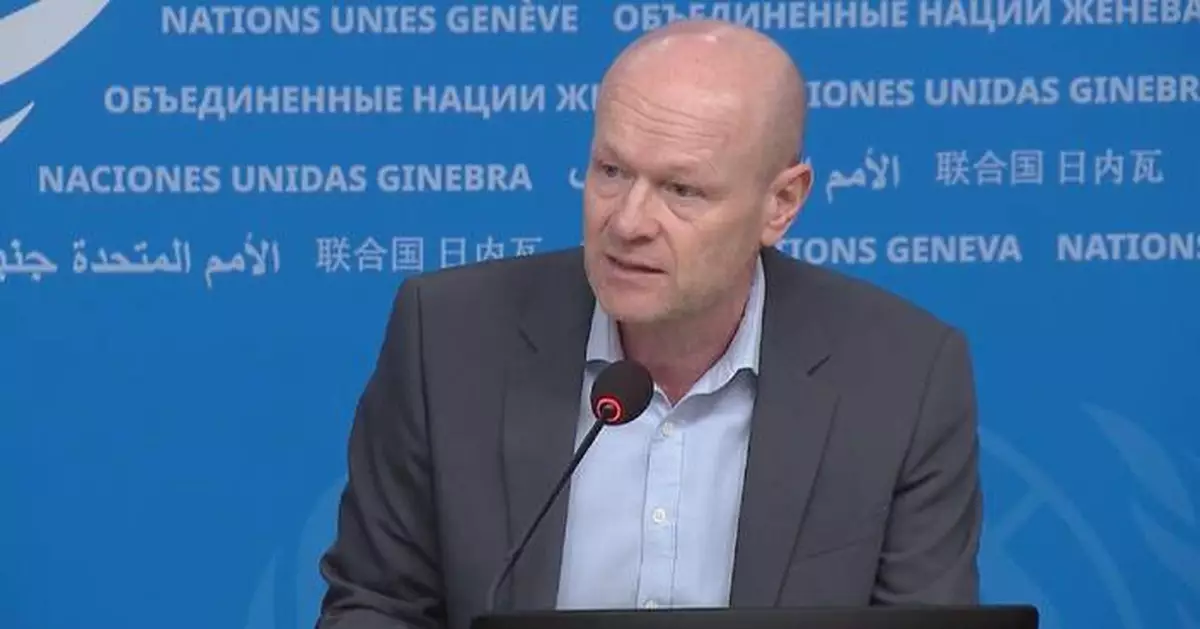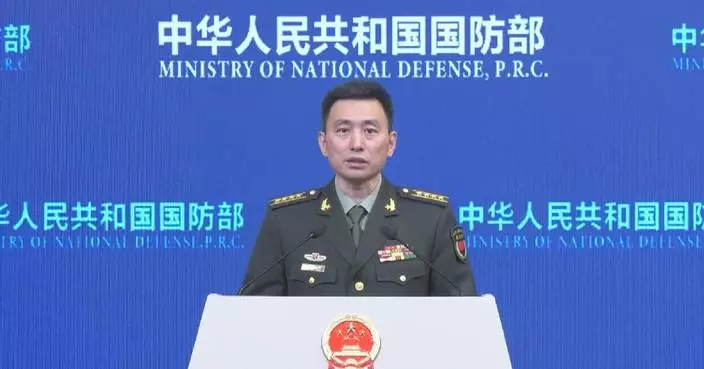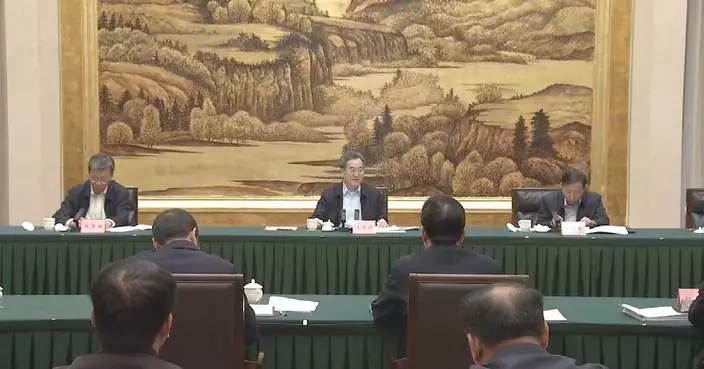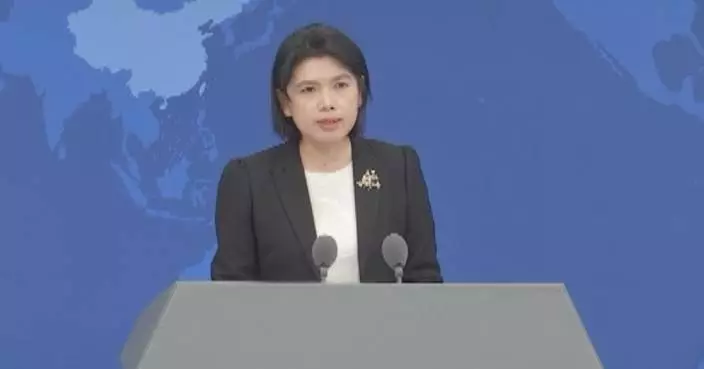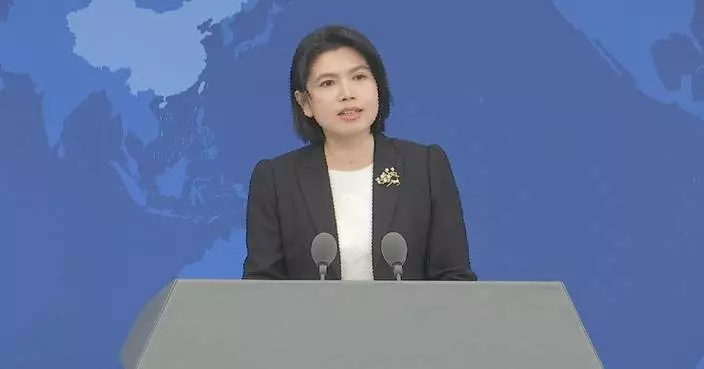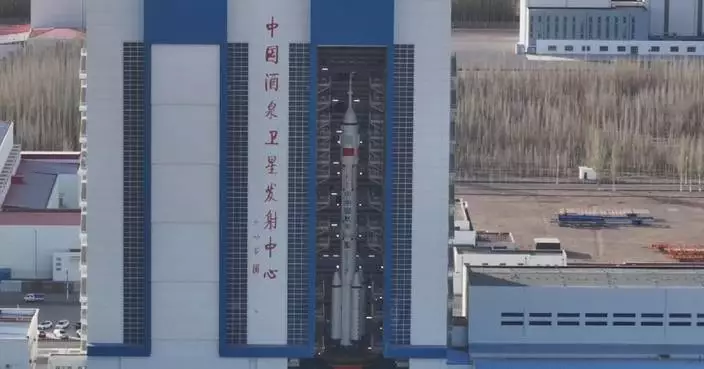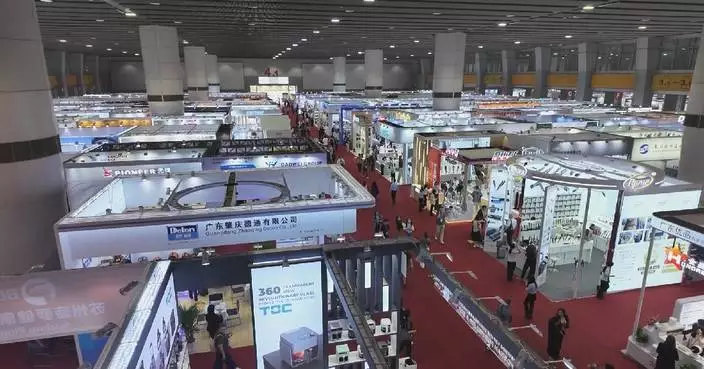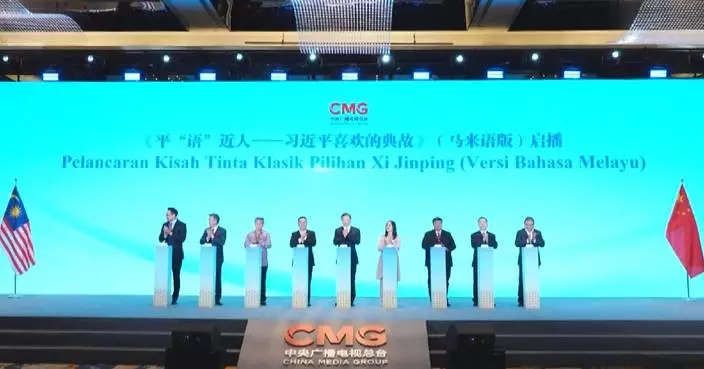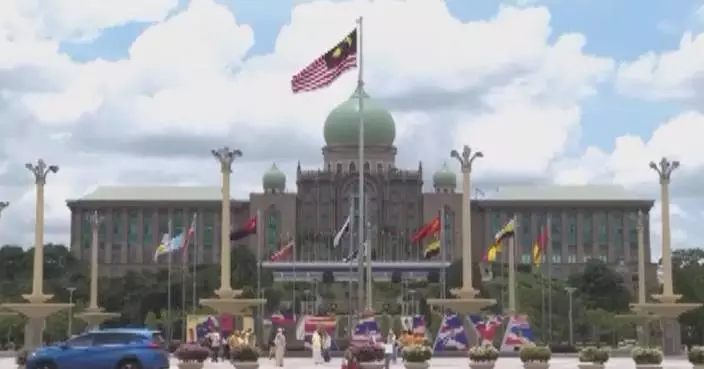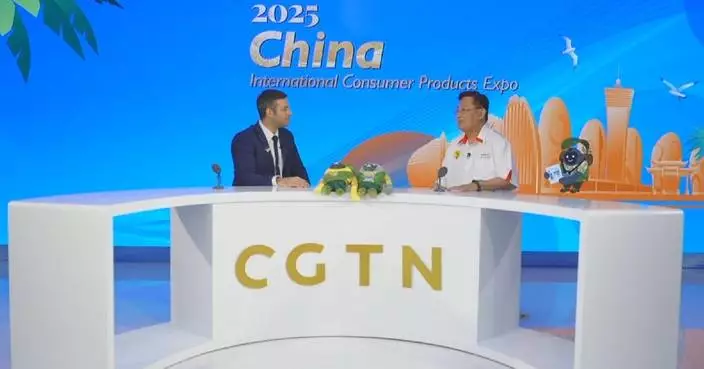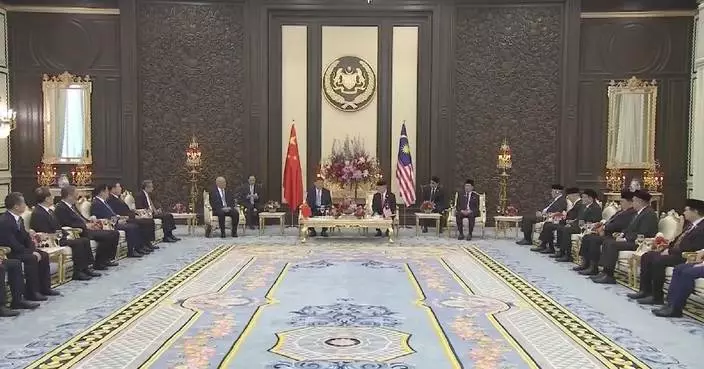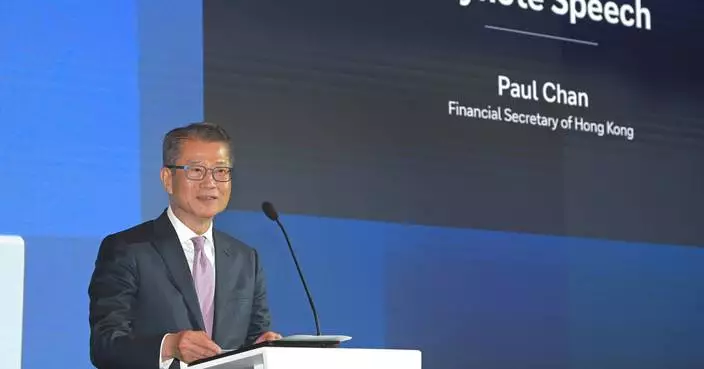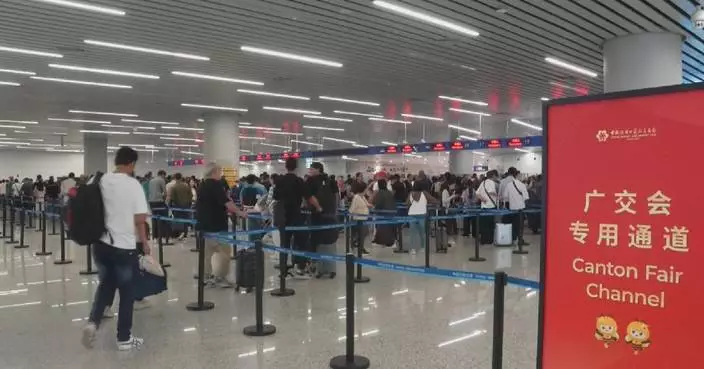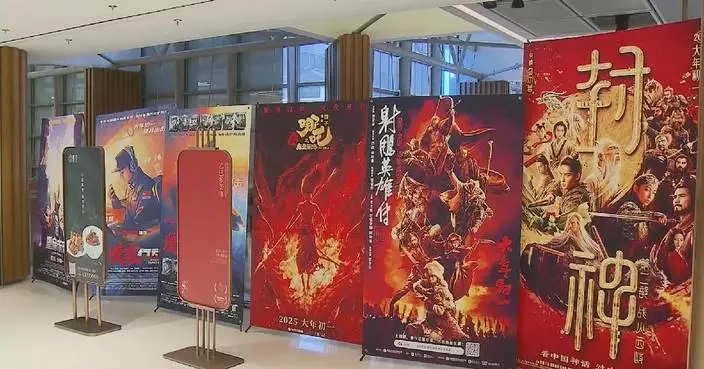The worsening humanitarian crisis in Sudan drives up the urgent need for a massive ramp-up of international funding as conflicts in the war-torn country enters the third year, said a UN spokesman on Friday.
At a regular press briefing in Geneva, Jens Laerke, spokesman for the United Nations Office for the Coordination of Humanitarian Affairs (OCHA), said the crisis shows no signs of abating.
"As the fighting in Sudan enters a third year with no viable peace in sight, the Sudanese are trapped in a humanitarian crisis of industrial proportions. Two out of three people need aid, that's 30 million people," he said.
The continuous fighting has caused a colossal trail of suffering to Sudanese, said UN refugee Agency in a recent post, warning that as funding for the regional response is less than 10 percent of what is needed, basic needs for conducting operation in the country is left unsatisfied.
"This, of course, demands a massive ramp-up of international support. What we see instead is donors pulling back funding across the world," said Laerke. According to the World Food Program (WFP), the ongoing conflict in Sudan has plunged the country into the world's worst famine disaster, with nearly half of its population facing the threat of famine. Meanwhile, Sudan's medical system has also sustained severe damage, causing soaring maternal mortality rate.
Sudan has been engulfed in conflict since April 2023, when fighting broke out between the Sudanese Armed Forces and the paramilitary Rapid Support Forces. According to the Armed Conflict Location and Event Data Project, cited by the UN, the conflict has claimed at least 29,683 lives.
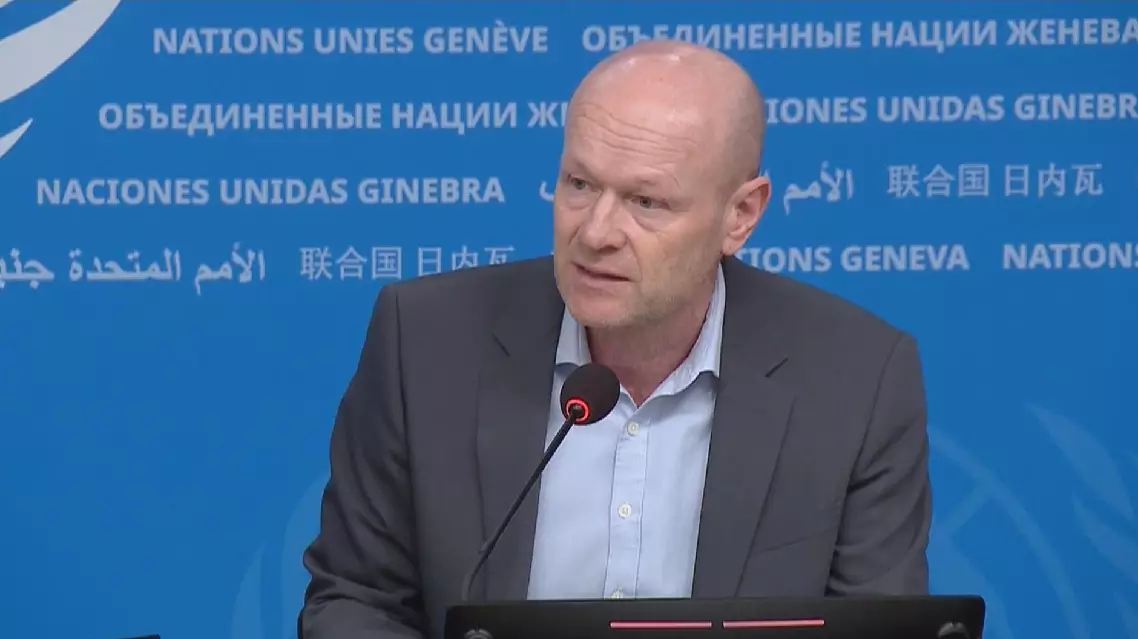
UN spokesman calls for more funding amid worsening humanitarian catastrophe in Sudan
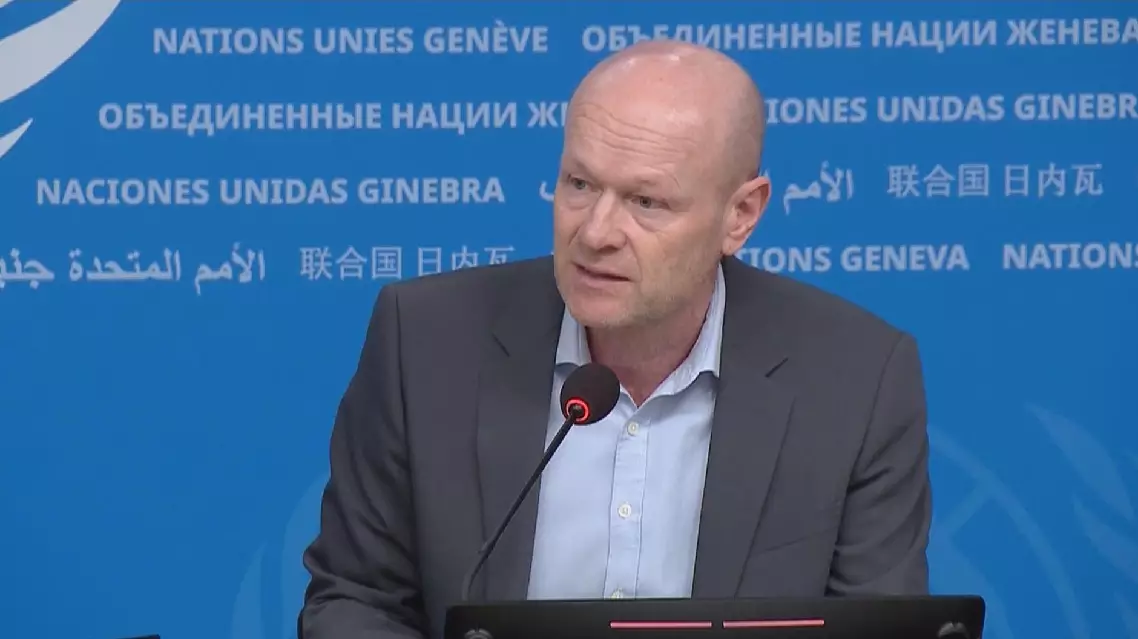
UN spokesman calls for more funding amid worsening humanitarian catastrophe in Sudan
Malaysian Prime Minister Anwar Ibrahim has praised the enduring strategic cooperation between Malaysia and China, emphasizing the importance of free trade and enhanced ASEAN cooperation in the face of global trade headwinds.
Ibrahim reflected on the 50 years of diplomatic relations between Malaysia and China, in an interview on Monday in Kuala Lumpur ahead of Chinese President Xi Jinping's ongoing visit to the country. Xi arrived in Malaysia on Tuesday to begin a state visit, the second stop of his current five-day, three-nation Southeast Asia tour which started in Vietnam and will later conclude in Cambodia.
Ibrahim highlighted several cooperation areas and future prospects when asked about the most outstanding achievement in China-Malaysia cooperation.
"This mode goes beyond the 50 years since our formal diplomatic ties. In fact, our friendly exchanges dated back much further, with a history of hundreds of years. As you all know, over the past two years, we have been working to enhance our foreign relations. First, by strengthening trade and investment cooperation among ASEAN countries. Then with our neighboring countries, including Japan and South Korea. But our ties with China are even closer, because China has always shown stronger willingness and sincerity in cooperation. We have seen growth in bilateral investment and trade volume. There has also been increased collaboration between universities, and more opportunities in TVET (Technical, Vocational Education and Training)," he said.
"Moreover, cultural exchanges and tourism have also seen obvious improvement. Progress in all these areas has greatly benefited us. It has improved our infrastructure and driven the development of sectors like catering and hospitality. Especially in technology and industrial sectors, we have witnessed the rise of major projects, such as the 'Two Countries, Twin Parks' initiative and technological cooperation projects like the one between Geely and Proton. The size and depth of these major projects far exceed what we have seen in the past," he added.
Addressing the challenges and opportunities in global trade, Ibrahim, who is also the ASEAN Chair, shared his views on leveraging regional strengths.
"There is no denying that tariffs have had a negative impact. As a trading nation, Malaysia has always believed in free trade. When tariff disputes happen, whatever the reason might be, it's going to hurt us. We must stay rational. At the ASEAN Trade Ministers' and Finance Ministers' meetings last week, we stressed that we should seek opportunities from our own strength. Instead of blaming someone else for a problem they created. We can further strengthen intra-Asian trade and investment cooperation, including cooperation with friendly countries such as China," he said.
"ASEAN countries also have great growth potential. Of course, we will not suspend consultations and negotiations with the United States. And we hope that trade will be back on the right track. About our relationship with China, as neighboring countries, China and Malaysia enjoy smooth and trouble-free relations. China's economic development can bring benefits to Malaysia. So I'm taking a pragmatic position. As long as the other country treats us with kindness, we should respond with even greater kindness," said Ibrahim.
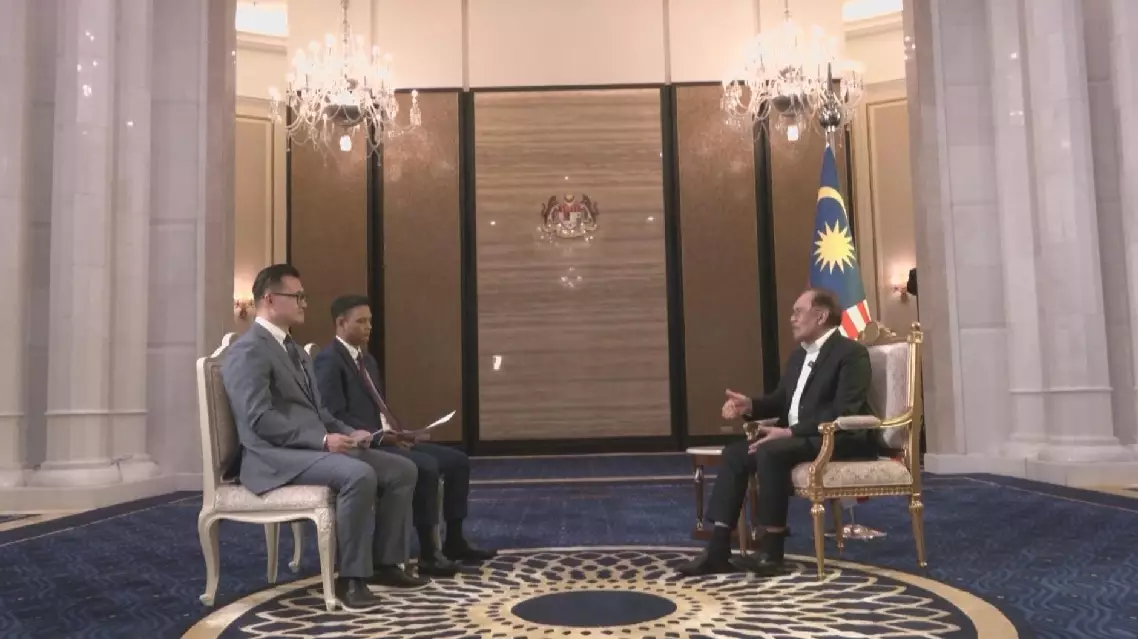
Malaysian PM hails ties with China, calls for stronger ASEAN cooperation




